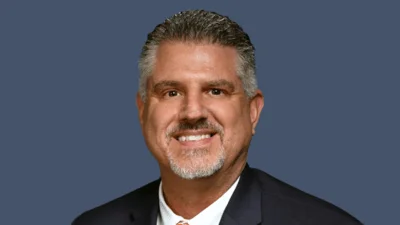Anderson for 5th district U S congress committee issued the following announcement on Oct 28.
To this day, some Holocaust survivors have not been paid money they’ve been owed for more than 70 years. As a recent Congressional Research Service report noted, “Up to billions of dollars worth of assets seized by the Nazis from individual citizens and deposited in private and national banks throughout Western Europe had never been returned.”
Claimants used to go through the International Commission on Holocaust Era Insurance Policies (ICHEIC), which was created in August 1998. However, the commission shut down in March 2007, having paid out $306 million to 48,263 claimants. The commission closed because they said they had completed all claims and appeals they’d received.
The commission was criticized by both sides of the political spectrum on several grounds. These included being overly deferential to the insurance companies, significant delays, and not paying out sufficient money, because they used what some considered an overly-strict formula to determine inflation over the decades.
But for all its faults, it was at least recognized as an established and definitive institution. Since its shutdown, U.S. citizens who survived the Holocaust and claim their money or insurance policies have not been paid back have not had such a clear source for where to turn.
What the bill does
The Holocaust Insurance Accountability Act would allow Holocaust survivors to claim unpaid 1940s-era policies by suing insurance companies in U.S. civil courts.
It was introduced in the Senate on October 17 as bill number S. 2621, by Sen. Marco Rubio (R-FL).
What supporters say
Supporters argue that the bill brings a level of fairness to those who have been treated among the most unfairly in human history.
“The Holocaust remains humanity’s darkest hour, leaving a permanent stain on history for all nations,” Sen. Rubio said in a press release. “We must continue to do everything we can to support survivors and their families. A large number of Holocaust-era insurance claims remain unpaid, and Congress must act to ensure that survivors can have their day in court to retrieve the amount their families are rightfully owed.”
What opponents say
Opponents have included a perhaps-surprising contingent of Jewish organizations, including the American Jewish Committee, Anti-Defamation League, and World Jewish Congress.
“[The bill] would require insurance companies to provide extensive lists of prewar policies without any prior vetting to determine if they were held by Holocaust victims. It would also open the door to a new set of legal battles in American courts,” the American Jewish Committee’s Andrew Baker wrote. [Page 158 of the PDF link.] “Both these steps would actually be detrimental to the concerns of Holocaust survivors and their heirs.”
“Such unvetted lists would only create false expectations among claimants,” Baker continued. “The new burdens imposed on the companies would effectively renege on the promise of ‘legal peace’ that was instrumental in securing their participation in the first place. Such promises have also been a key to settling other Holocaust-era claims, and [the bill] could adversely affect similar negotiations in the future.”
Odds of passage
The bill, only out for a few days, has attracted two bipartisan Senate cosponsors: one Democrat and one Republican, Sens. Jacky Rosen (D-NV) and Rick Scott (R-FL).
Sen. Rubio previously introduced the legislation three times this decade, with fellow home state Sen. Bill Nelson (D-FL): in 2011, in 2016, and in 2017. None of those versions received a committee vote.
House versions were also introduced in 2008, in 2010, in 2011, in 2016, and in 2017. None of those versions received a committee vote, either.
Original source here.


 Alerts Sign-up
Alerts Sign-up